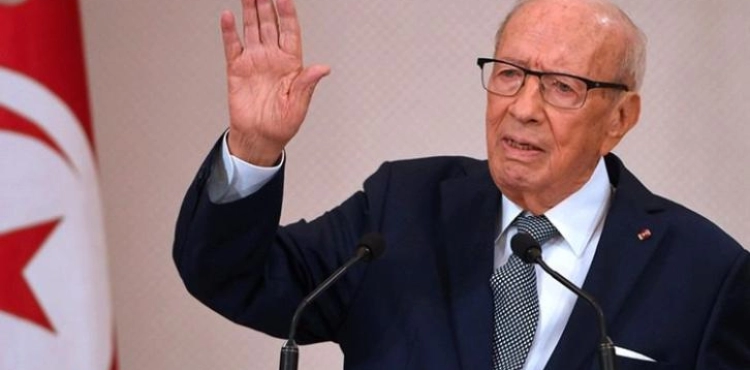The health situation of President Béji Kaid al-Sibsi, 92, is improving on the day of his transfer to hospital after suffering a stroke and "no constitutional vacuum", the Tunisian presidium said on Friday. Elections scheduled for the end of the year.
The Constitutional Court shall decide on the vacancy of the post of President of the Republic. But since 2011, the parliament has not been able to elect the members of the court, whose mission is to oversee the process of democratic transition in the country.
The Constitutional Court to review the constitutionality of laws replaced the Constitutional Court but does not have a clear mandate to decide similar cases, according to Tunisia´s political and parliamentary "Compass".
"This is the most acceptable interpretation in all cases," said Mehdi al-Ash, a legal analyst at Compass.
Shafiq Sarsar, the former president of the electoral commission, said that if the interim committee to monitor the constitutionality of laws decided not to intervene, "it is possible to go directly to the parliament and appoint its president."
Parliament Speaker Mohamed Al-Nasser (85) temporarily holds office in the event of the death of the president in accordance with Chapter 84 of the Constitution.
Nasser was elected president of parliament in 2014 and is one of the politicians close to Qais al-Sibsi.
The prime minister may also be appointed as head of state in two cases.
- According to Article 83 of the Constitution, which stipulates that "the President of the Republic if he can not perform his duties in a temporary capacity to delegate his powers to the Prime Minister for a period not exceeding sixty days."
The President of the Republic shall inform the Speaker of the People´s Assembly of his provisional authorization of his powers.
- In the case of temporary vacancy of the Authority, the Prime Minister shall replace the President immediately for sixty days.
"There will be one president for all the executive branch," Yusuf said. He could later approve the amendments passed last week by the parliament that could have investigated his political opponents.
Parliamentary elections are held in Tunisia on 6 October, followed by the presidential elections on 17 November.
If early presidential elections are approved, it is likely that work will not be carried out in accordance with the amendments passed by parliament to the electoral law so that candidates who have been excluded can participate.
An analyst at Compass said the postponement of the election would be "a major break of the constitution."












